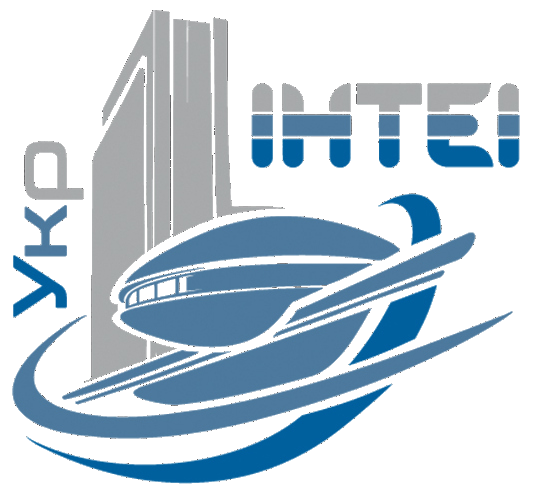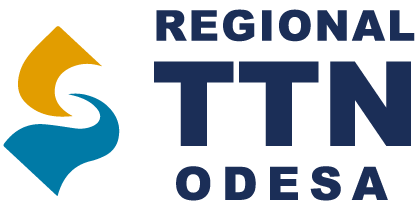The economic crisis – how to resist together?
 So, we have the perfect storm. Pandemic, economic, social and political crises combined. Quarantine has become a trigger that only accelerates a number of crisis phenomena that have been ripening, in particular, the economic crisis, including the decline of the industry, which has been talked about a lot since the beginning of the year. And we all want to believe that the new government has brought together anti-crisis managers of the extra class. However, the first actions and movements of the new ministers are indicative of a continuation of the rhetoric of populism rather than genuine anti-crisis measures and stimulation of the economy. At least, there is no clarity on how the government wants to balance the numerical limitations of business activity with the challenges of filling the budget and stopping the already existing crisis phenomena.
So, we have the perfect storm. Pandemic, economic, social and political crises combined. Quarantine has become a trigger that only accelerates a number of crisis phenomena that have been ripening, in particular, the economic crisis, including the decline of the industry, which has been talked about a lot since the beginning of the year. And we all want to believe that the new government has brought together anti-crisis managers of the extra class. However, the first actions and movements of the new ministers are indicative of a continuation of the rhetoric of populism rather than genuine anti-crisis measures and stimulation of the economy. At least, there is no clarity on how the government wants to balance the numerical limitations of business activity with the challenges of filling the budget and stopping the already existing crisis phenomena.
The main scenario of the fall
If we take into account the main factors of industry decline in the last 2 quarters, there are only three of them – 1) deterioration of the price situation in the world markets for exporters of raw materials, 2) recession in the world markets (in particular, fell in late 2019 and much EU industrial markets), 3) artificial strengthening of hryvnia.
It is clear that the new financial market collapse and the oil crisis have a further negative effect on the first two factors. The hryvnia went into free swimming, but it is unlikely that it will greatly help our exporters. With the introduction of total quarantine, a number of new factors come into force.
- Conscious stop of several important industries – such as tourism, restaurant and hotel business, trade and transport (air and rail). All in all, there are hundreds of thousands or more of a million jobs. For example, Ukrzaliznytsia alone is more than 200 thousand workers, so (with families) about 1 million people are now completely dependent on the state budget. And tourism and the restaurant and hotel business are essentially the main sources of local budget filling in cities such as Lviv. What about small, self-employed business entrepreneurs who have just lost their main source of income right now?
- Limitations and interruptions in logistics. The closure of borders and transport links, automatically blocks or interrupts a number of trading chains – both export and import. We can only guess what the losses are already in our budget, there are no exact figures.
- The mass transfer of workers to a remote mode of work does not contribute to productivity growth, but rather the opposite.
- The financial crisis triggers panic and shutdowns of deals and new investments. The first community surveys on networks clearly show how business # 1 is responding to “freezing new deals and investments.” Next is the decline in purchasing power.
Therefore, how these new factors unfold over time and what damage they do to businesses and the state budget is difficult to estimate. It is only clear that they already amount to hundreds of millions of hryvnias. It is clear that in Ukraine the domestic market will sharply fall now, with all its numerous and related chains – for even the hundreds of thousands of employees who are withdrawn from their operations are consumers of the same consumer goods produced by numerous food and other industries.
All economists say in one voice that macroeconomic and financial stability is the key to managing the situation in these conditions. However, our government acts differently – instead of negotiating with the IMF rather quickly, it calls a meeting of oligarchs and asks for their help. Only very naive people can hope that Mr. Akhmetov and Kolomoisky will do anything for the country’s economy simply in the form of charitable intentions. It is obvious that the economy is now becoming even more dependent on several oligarchs. And that means that their interests – not small and medium-sized businesses – will be the drivers of decisions in most cases.
The government is also clearly undermining the truth of the time factor. Most forecasts both in the world and in the EU say that quarantine measures may be delayed until June – July. So – and given the lag of time with us – our peak of the epidemic may come at the end of April, and precautionary measures will be delayed until August. How this will sustain our economy – no explanation from the government.
In these circumstances, we should not even hope for any significant assistance from our country, as the European Union or the States are doing now, throwing billions of euros and dollars into their markets to stimulate economic activity and consumer demand. The maximum that our government and parliament have come up with is to delay some types of taxes, to punish them for not paying them, and to reduce checks. To hope that this really returns or at least keeps us high levels of business activity and investor confidence is simply ridiculous.
So, what to do? We at the Association of Industrial Automation of Ukraine (APPAU) are looking at several initiatives, but we are confident that the impact will be many times greater if they are joined by other business associations and Industry4Ukraine partners. The main basic principle for all of the proposals below is that we should only rely on ourselves. It is about the grassroots self-organization of businesses, regions and industries, and which are able to influence the actions of executive authorities and their environment much more effectively.
APPAU Initiatives for Industry4Ukraine
1. Creating a strong think center focused on industrialists.
At a time when business decisions should be based on accurate data and the most accurate forecasts – at least in the short term – we are in complete disarray. This is especially true of the numerous service industries that are behind the core consumer product industries in the value chain. These forecasts and appropriate solutions are essential for quick orientation and reformatting of businesses. For example, it is almost obvious that the domestic market for individual pharmaceuticals and medical devices will grow today. But what, how and how will it happen with other industries? What about importers and exporters in individual markets? How serious are logistical failures and how can they be overcome? Are there maneuvers and opportunities in the financial sphere?
All industrialists need accurate and balanced analytical data and guidance on these issues.
The APPAU proposes to create a think center that will include a number of analysts and executives from business associations, chambers of commerce and development agencies. The main roles and functions of this center are different from other existing ones.
- Focus on industry segments with regular coverage of trends in them, including exports and imports
- Forecast of development scenarios for individual industries and segments
- Making recommendations for government and business
2. Establish an Industry4Ukraine Council that can translate the findings of the think center into actionable solutions, align them with other industry associations, and jointly persuade the government to take any steps and action plans. The Council should include the heads of several leading industry associations, as well as think tanks, chambers of commerce, regions and lobbyists close to the government.
This is a necessary step, given the low level of consolidation of the interests of numerous industrial and high-tech development groups on the current agenda, which is defined by the largest industrial associations such as the Federation of Employers of Ukraine (FEU) or Ukrainian Union of Industrialists and Entrepreneurs (UUIE). In particular, we do not see our counterparts addressing the interests of our colleagues, but the main potential of the IT industry and developers of high-tech products and solutions (ie, representatives of Industry 4.0).
3. Accelerate the digitization of certain processes and activities.
Ukrainian business, all industrialists have to accelerate significantly in the present conditions the automation of numerous business processes, which today involve the human factor and manual labor. All these processes, which previously required the office and the gathering of several, or tens or hundreds, of employees to administer the business, should be automated and translated online. This applies to numerous business processes like
- Document management of the enterprise
- Accounting
- Logistics, including procurement and supply management
- Marketing and sales
- …
Most of the operations in these processes can be done online and, above all, small and medium-sized businesses. Today, it is not only a matter of increasing productivity, but of ensuring workers’ health and compliance with quarantine measures.
The same is true of many operations with manufacturing processes, although other causes and factors are discussed here. First and foremost, we are talking about a shortage of skilled personnel in certain production areas, and where solutions can be automation and robotization. Also, a large demand for large-scale productions will be provided by systems of forecasting, optimization of production processes and rapid adjustment to new products or services. This is the level of the so-called MES-ERP systems – they are already in many enterprises, but are not fully used.
In all these cases, the “figure”, i.e. accurate, complete and relevant data, their high-quality processing, automation of routine processes are of great importance today for effective management decisions, as well as for optimizing the work of enterprises.
4. Accelerating clustering at regional and sectoral levels
If Ukraine had developed industrial clusters today, we would not have such problems neither with analytics, nor with value chains, with the understanding of new opportunities of internal and external markets, or with anti-crisis measures. Unfortunately, this is not present in Ukraine, and we are one of the most backward European countries in this respect. The great advantage of clusters in situations like today is their ability to respond flexibly and quickly to changes in market demand. In other words, a single, national-level industry association, such as machinery and equipment for the oil and gas industry, cannot anticipate the full range of economic consequences of changing demand, and for all related chains. Meanwhile, these changes can not only be critical to the economies of individual regions, but also affect adjacent industries, triggering a negative cumulative effect. This is exactly what we saw in 2014 in a number of eastern and central regions, where enterprises focused on exports to the Russian Federation and other CIS countries. The fall in exports of large oil and gas exporters has automatically pulled down hundreds of related companies in the fields of design, industrial automation, construction and installation, engineering companies.
In these cases, how would EAM (Engineering-Automation-Mechanical Engineering) clusters work, which integrate all these related sectors that form a single value chain, work? They would be much faster – a) to analyze the situation and forecast the consequences, b) to refocus on other markets, and c) to create other value chain configurations with other offerings. But there were no strong clusters then, not now. Let us also remind you that the hopes of the government in such cases are in vain – this was fully proved by the same 2014, when all our machine builders and other exporters were left alone with the crisis.
So, now it is necessary to accelerate these processes several times. APPAU is already in the process of forming EAM clusters in Zaporizhia, Mykolaiv, Odesa and Kharkiv, and is being prepared in Kyiv. But if we join forces with several powerful engineering associations or regional development agencies, these processes will go much faster.
5. Accelerate integration into global value chains
This is another super-important direction for change that requires full mobilization and rapid response at the grassroots level of associations and regions. The situation with COVID-19, interruptions in China’s “factory of the world”, huge funds being created in the eyes of the EU and other developed countries – all together, this creates new opportunities for Ukrainian developers of IT, industrial and high-tech products.
But again, “where and how to move” is a matter of analytics and purposeful, conscious and specific strategies and programs of action, not a chaotic response to the spontaneous demand that will change tomorrow. In preparation for the Hannover Exhibition, which has now been postponed to July, the APPAU is preparing a national Strategy for Export and Internationalization of Ukrainian Industry 4.0. Global integration strategies will play a big role in this – we previously wrote about it on Industry 4.0.
*******
In summary. The Industry4Ukraine platform has a strong ideological foundation in the form of a Manifesto. This document undoubtedly remains our strategic course and guideline in cooperation with the state. At the same time, in 2019, we were unable to reach effective engagement and address the key challenges in implementing the provisions of the Manifesto. Now may be the time to include the next gear and greatly increase the centripetal movement towards genuine integration and operational efficiency across the various industrial and high-tech groups, as well as government agencies. In each of the above areas, we are now formulating specific plans. For counter cooperation offers – email us at info@appau.org.ua
Yurchak Olexander, CEO of APPAU, Member of Industry4Ukraine Organizing Committee
Source: industry4ukraine.net












